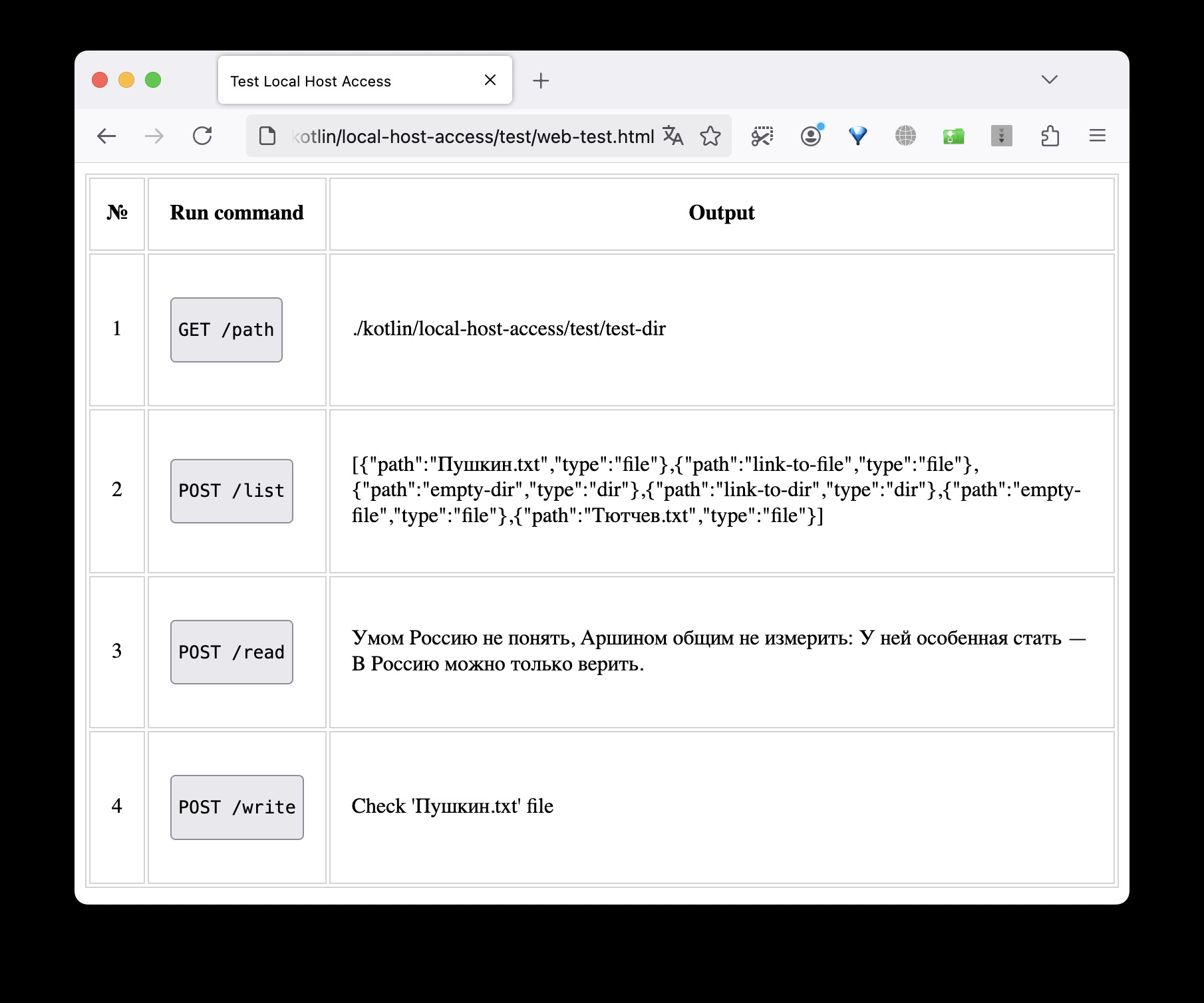The first Local Host Access working version
2024-12-09 00:00

Local Host Access
Tiny web server called Local Host Access (LHA) is ready to replace Local File System Access (LFSA) on JVM and macOS: I've generated this very article with LHA on macOS. Thus, Kotlin prooved to be a good choice for cross-platform development with a minor limitation.
The minor limitation is the fact that 99% of Kotlin is used on JVM. The
remaining 1% is so-called Kotlin Native for iOS, Linux, macOS, and Windows.
Thus, when one needs something as simple as to find out if a symlink
points to a file or directory, that's a dead end, there's no article for
that on the Internet. For C, there are numerous articles telling to call stat()
function. For Kotlin Native, it's unclear how to properly make such a simple call.
I've actually asked this specific question in November,
and still wait for an answer.
In the meantime, I had to resort to calling stat in the shell (aka system()).
December
I plan to implement the first Kotlin -> Python translator to let LHA cover as many platforms as the original LFSA in Python.